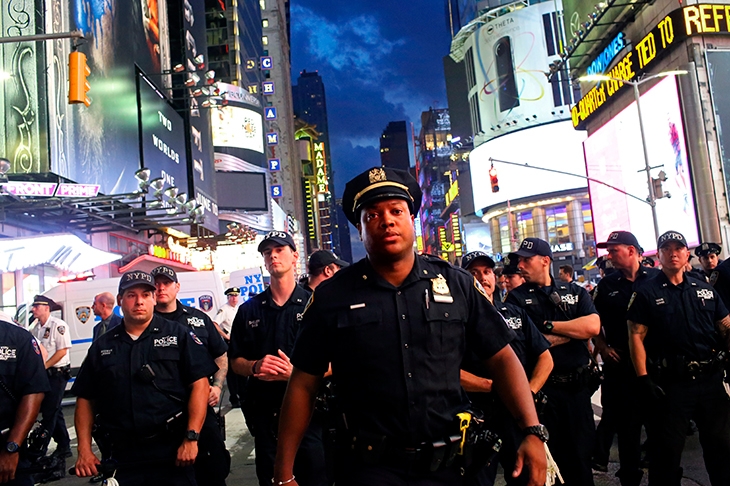New York City
This past month shattered all my sense of stability and permanence in New York, the city I’ve called home since 2012 (though I’ve spent some of those years in London). The looting mobs that rampaged through Gotham’s streets put me in mind of my native Middle East, a phenomenon I thought I’d left behind ‘over there’, not to be encountered except on the occasional reporting trip to Iraq or Egypt. But no. An unjust police killing in Minneapolis — combined, no doubt, with the effects of a prolonged lockdown — Arab Spring’d the United States, if you will. Or rather, the riots revealed that America’s advanced liberal society isn’t all that different from the Arab client states Washington likes to lecture. It was all so grim — and terrifying, if you witnessed firsthand the NYPD’s sheer impotence in the face of mass disorder, as I did. On Lexington Avenue I watched police officers stand around like schmucks as rioters openly looted.
The joy of being a dad has been my principal escape through the riots and lockdown. Fatherhood and nostalgia are tightly bound up. I see this clearly now, as I rekindle my friendship with Tintin and introduce him to my three-year-old son, Max. My earliest memories of books involve lying in a sun-bathed room somewhere in my childhood home in Tehran, tearing through those crisply illustrated tales of the Belgian boy reporter, his talking dog and his sweary, alcoholic sailor friend, Captain Haddock. The Persian editions were tattered hand-me-downs from the Pahlavi era, before the mullahs canceled Hergé and other icons of western ‘decadence’. One of the great marvels of immigrating to America was that I could buy brand-new Tintin comic books here. Max is especially fond of The Shooting Star, about Tintin’s quest to recover a fragment of space rock that plunges into the Arctic. My boy can’t get enough of the giant mushrooms that mysteriously swell out of the meteorite’s surface before spontaneously vaporizing. I, meanwhile, have been struck by the apocalyptic gloom that pervades the book, now freshly resonant, what with the virus, the lockdowns, the New Great Depression, the riots and, above all, the hysteria of scientific and political elites. Hergé first serialized The Shooting Star in 1941-42 in a Belgium under occupation. (He sadly marred the story with a sop to Nazi anti-Semitism: Tintin’s and Haddock’s dastardly rival in the race to find the meteorite was a bulbous-nosed financier named Blumenstein.) It’s a comic book about the (almost) end of the world, created when Hergé’s own genteel, boring, Wallonian world had collapsed. This lends it a verisimilitude I only now appreciate, amid our own crisis. As the meteorite nears the Earth, the temperature suddenly spikes, rats stampede, tires blow out, asphalt melts, tremors rip through the roads, glass shatters, mad prophets preach repentance. No human power can put a stop to this chain of events — until it becomes clear that the scientists who predicted doom had made mistakes in their calculations and the meteorite misses the earth. That accelerating procession of hitherto unthinkable or uncanny events should by now be familiar to us: which New Yorker three months ago could have predicted the emptying out of Times Square and Midtown? Which of us could have seen double-digit unemployment coming, after the historic jobs gains of the past three years? Who could have foreseen how the city of 50,000 restaurants would end up with zero open tables? Yet here we are. And the agonizing fact, for a father especially, is that unlike in Tintin’s ligne-claire universe, where all things always go back to normal, there is no going back after a near-miss apocalypse in the real world.
One amusing tidbit in Hergé’s apocalypse-that-wasn’t is the disappointment of the scientists with the outcome. While Tintin cheers the survival of the world, the astronomer Decimus Phostle is downright glum. ‘The meteorite,’ he tells the reporter, ‘has passed 30,000 miles from earth, instead of colliding with it and causing the magnificent cataclysm I’d hoped for!’
[special_offer]


















